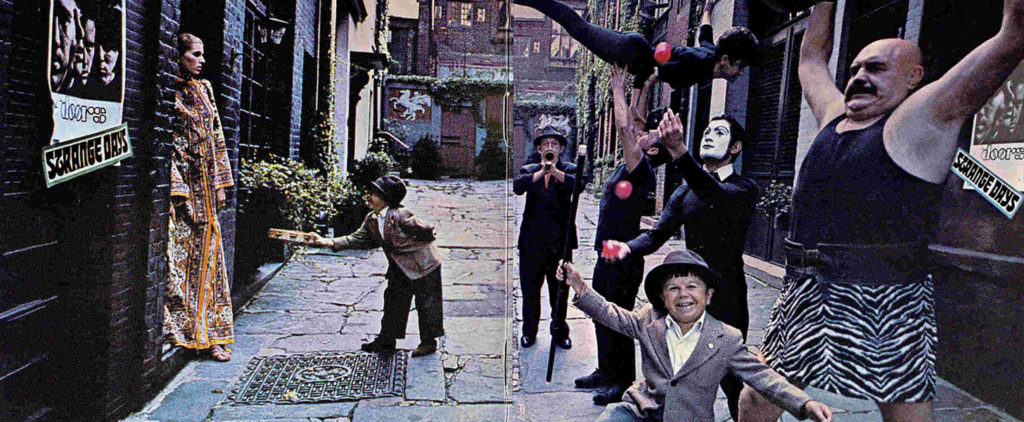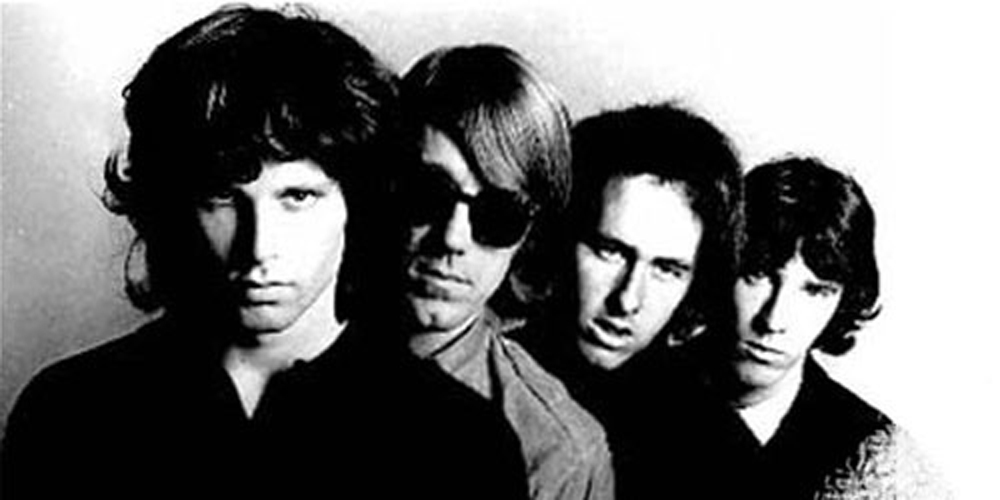A Flashback 50 with The Doors "Strange Days"
 In 1967, The Doors released not one, but two albums. Their self-titled debut in January of ‘67 with songs like “Light My Fire” and “The End,” and it’s follow-up, Strange Days, released on September 25, 1967. It’s lesser known than the debut. It didn’t have any big hits on it, and it “only” got to number 3 on the Billboard charts which is a bit ironic, given that their debut was still in the Top Ten 9 months after its release.
In 1967, The Doors released not one, but two albums. Their self-titled debut in January of ‘67 with songs like “Light My Fire” and “The End,” and it’s follow-up, Strange Days, released on September 25, 1967. It’s lesser known than the debut. It didn’t have any big hits on it, and it “only” got to number 3 on the Billboard charts which is a bit ironic, given that their debut was still in the Top Ten 9 months after its release.
But Strange Days was a brilliant album with a more polished and spacious sound courtesy of producer Paul Rothschild, engineer Bruce Botnick and a new 8-Track tape recorder, state-of-the art for the day. The album is darker than the debut with songs like “Strange Days” questioning the efficacy of the counter-culture and the epic 11-minute track, “When the Music’s Over.” If “The End” was high acid drama, “When the Music’s Over” was apocalyptic.
This was a more alienated band. Both “Strange Days” and “People Are Strange” suggest a Jim Morrison who was out of sync with his surroundings. And that may have been more psychological than pharmaceutical although it’s hard to tell. Even songs like “Moonlight Drive,” which were actually composed before The Doors formed and were demoed for the first album, have an ominous feel as Morrison sings in a darkly hued voice, relating a tale of suicide of at least, oblivion. Likewise, “I Can’t See Your Face in My Mind” is a song of cultural overload as “carnival dogs consume the lines,” a line that Morrison sings in what he reputedly called his “psychedelic Sinatra” voice.
“Love Me Two Times” is the song that always stuck out the wrong way for me on this album. It’s a lighter tune, a song of farewell, written by guitarist Robby Krieger and played out over Ray Manzarek’s baroque boogie-woogie harpsichord.
 Robbie Krieger is the instrumental star of the album with brilliant slide guitar on “Unhappy Girl”, another song of alienation, while he plays a similar fete on “Moonlight Drive,” his ascending and descending slide giving an eerie air atop drummer John Densmore’s slow tango groove, before heading into the acid blues slide solo. And his double-tracked feedback guitar solo on “When The Music’s Over” is one of the best acid-rock guitar solos ever.
Robbie Krieger is the instrumental star of the album with brilliant slide guitar on “Unhappy Girl”, another song of alienation, while he plays a similar fete on “Moonlight Drive,” his ascending and descending slide giving an eerie air atop drummer John Densmore’s slow tango groove, before heading into the acid blues slide solo. And his double-tracked feedback guitar solo on “When The Music’s Over” is one of the best acid-rock guitar solos ever.
It’s startling how fresh songs like “Strange Days”, “People Are Strange” and “Moonlight Drive” sound today. The song “My Eyes Have Seen You” is an underrated Doors’ tune; a song that builds from a syncopated almost military 4/4 that evolves into a headlong charge as Morrison relates his ascension from lust into a quatrain of spiritual ecstasy, each beginning with the title. It also has another great Krieger solo of repeated riffs and screaming sustain.
Strange Days is being reissued in November in a deluxe edition that includes the original mono mix. I’ve read that the band preferred that version but I find hard to believe. This album isn’t like the early Pink Floyd records or Sgt. Pepper’s Lonely Hearts Club Band from that era. With the 8 track tape recorder, they were able to spread the sound out and create the psychological space that made this such a great trip album for the era. You were enveloped not only in musical space, but psychological space.
In the hindsight of 50 years, Strange Days remains one of the most powerful albums of 1967. It’s far less dated than The Beatles’ Sgt. Peppers and certainly The Rolling Stones’ Their Satanic Majesties Request. Morrison’s relatively minimal lyrics sound more trenchant, Krieger’s guitar more incisive and Densmore’s drumming more inventive than ever before. Ray Manzarek, especially when playing organ, held it all together with his Bach meets jazz phrasing.
Finally, Jim Morrison’s voice was powerful; vulnerable when he needed it, dark when he wanted it and passionate always. And just let me say, Morrison has the best “Yeah” in rock and roll. From the shout that leads into the instrumental middle of “Strange Days” to the scream that launches “When the Music’s Over.”
We’ll be featuring music from the album tonight, 9/27, with songs from the original and some modern covers by Robot Koch, Agnes Obel, George Winston and Nigel Kennedy.
